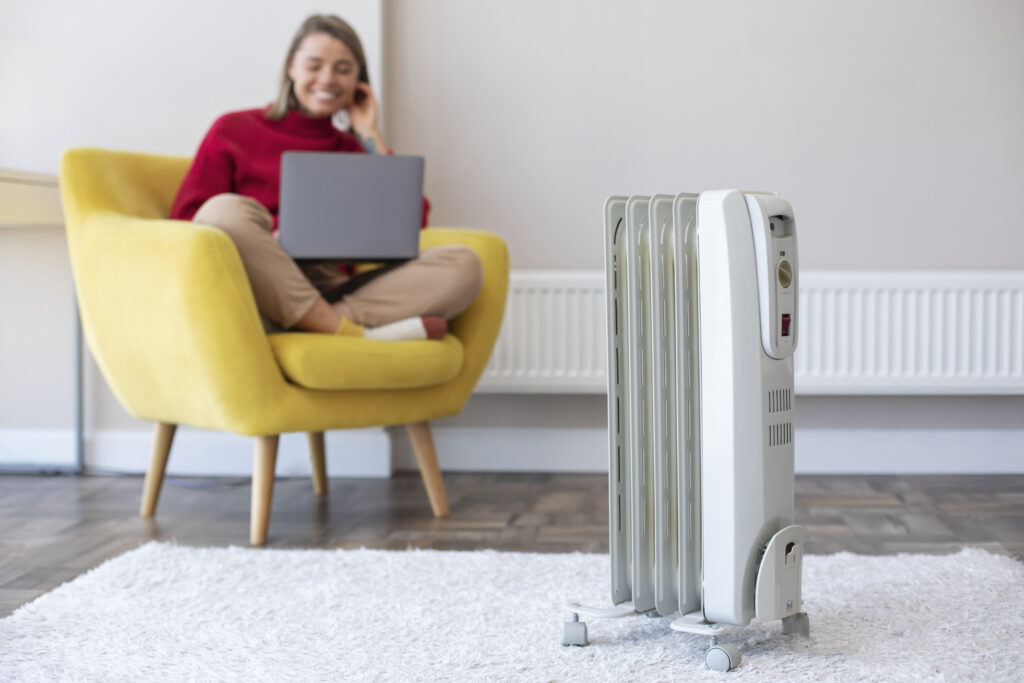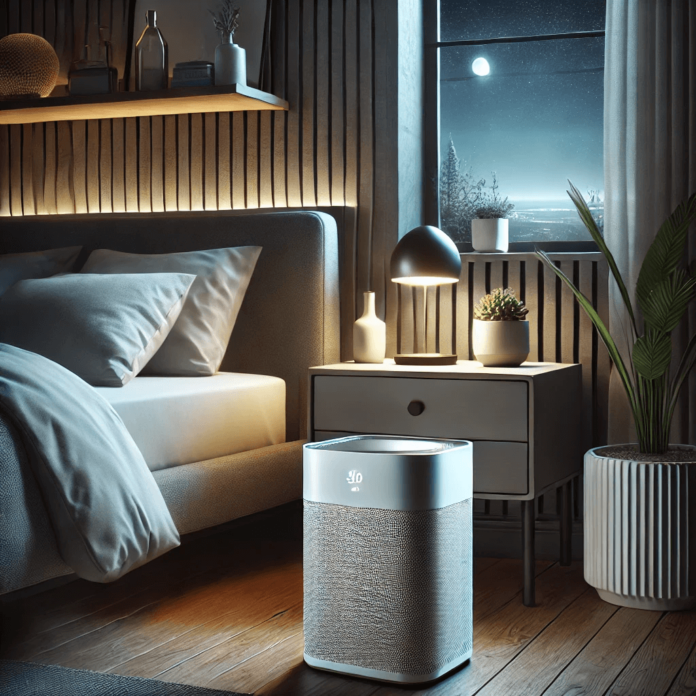Introduction
- Quiet Air Purifiers: Ideal Solutions for Peaceful and Clean Bedrooms
- How Air Purifiers Improve Sleep Quality
- Why Quiet Operation Matters for Bedroom Air Purifiers
- Key Features to Look for in Quiet Bedroom Air Purifiers
- Top Quiet Air Purifiers for Bedrooms Reviewed
- How to Choose the Right Air Purifier for Your Bedroom
- Tips for Using Air Purifiers in Bedrooms
- The Benefits of Sleeping with a Quiet Air Purifier
- Innovations in Quiet Air Purifiers for Bedrooms
- Conclusion
- FAQs
Quiet air purifiers are essential for creating a restful sleeping environment while ensuring clean, healthy air. Designed specifically for bedrooms, these bedroom air purifiers operate silently, making them ideal for light sleepers and those seeking uninterrupted rest. Equipped with advanced HEPA filters, they effectively remove allergens, dust, and odors, providing a fresher atmosphere. Whether you’re dealing with allergies or just want a better night’s sleep, quiet air purifiers are the perfect addition to your bedroom for peaceful and purified nights. A good night’s sleep is essential for overall health and well-being, and indoor air quality plays a significant role in achieving restful sleep. For those with allergies, asthma, or sensitivity to odors, clean air can make all the difference. Quiet air purifiers for bedrooms are specifically designed to remove airborne irritants without disturbing your sleep, ensuring you wake up feeling refreshed and rejuvenated. This guide explores how these devices work, their key features, and the best options available for creating a peaceful and clean sleeping environment.
Quiet Air Purifiers: Ideal Solutions for Peaceful and Clean Bedrooms

Quiet air purifiers are designed to improve indoor air quality without disrupting your peace. These devices operate at low decibel levels, often quieter than a whisper, making them perfect for bedrooms and shared spaces.
With features like HEPA filtration, they effectively remove allergens, dust, and pet dander, creating a healthier sleeping environment. Many models also include sleep modes that reduce noise and dim lights, ensuring uninterrupted rest. If you’re looking for an air purifier that combines performance with quiet operation, these devices are an excellent choice for your home.
How Air Purifiers Improve Sleep Quality
Air purifiers help improve sleep by targeting common indoor air pollutants:
- Allergens: HEPA filters trap dust, pollen, and other allergens that can disrupt breathing during sleep.
- Pet Dander and Mold: These microscopic particles are effectively removed, reducing respiratory irritation.
- Odors and VOCs: Activated carbon filters neutralize unpleasant smells and harmful chemicals, creating a fresher environment.
Cleaner air promotes better breathing, fewer interruptions, and a more restful night.
Why Quiet Operation Matters for Bedroom Air Purifiers
Noise can significantly impact sleep quality, especially for light sleepers. Quiet air purifiers:
- Operate Below 30 dB: Comparable to a whisper, ensuring they won’t disturb your rest.
- Include Sleep Modes: These settings reduce fan speeds and turn off lights for nighttime use.
- Foster Relaxation: A calm, silent environment enhances relaxation and improves overall sleep quality.
Key Features to Look for in Quiet Bedroom Air Purifiers
- Low Noise Levels: Look for models rated at 30 dB or lower on the lowest setting.
- Effective Filtration: HEPA filters for allergens and carbon filters for odors are essential.
- Night Mode Settings: Options to dim or turn off lights and reduce fan speeds.
- Compact Design: Smaller units that fit seamlessly into bedroom spaces.
Top Quiet Air Purifiers for Bedrooms Reviewed
1. Levoit Core 300S
- Features: True HEPA filter, quiet operation, smart app control.
- Noise Level: 24 dB in sleep mode.
- Pros: Affordable, compact, excellent for small to medium rooms.
- Cons: Lacks advanced features like air quality sensors.
- Price: $150
2. Blueair Blue Pure 411 Auto
- Features: HEPA filtration, auto-adjusting fan speeds, energy-efficient.
- Noise Level: 18 dB on the lowest setting.
- Pros: Whisper-quiet operation, stylish design, low energy use.
- Cons: Limited coverage for larger rooms.
- Price: $130
3. Coway Airmega AP-1512HH
- Features: HEPA filter, carbon filter, eco mode.
- Noise Level: 24 dB in eco mode.
- Pros: Powerful filtration, energy-efficient, sleek design.
- Cons: Slightly larger footprint.
- Price: $250
4. Honeywell HPA100
- Features: True HEPA filter, compact design, easy-to-use controls.
- Noise Level: 23 dB on the lowest setting.
- Pros: Affordable, reliable, great for small rooms.
- Cons: No advanced smart features.
- Price: $120
5. Dyson Pure Cool Me
- Features: HEPA filter, fan functionality, sleek design.
- Noise Level: 22 dB at low speeds.
- Pros: Modern aesthetics, dual-purpose cooling, and purification.
- Cons: High price point for limited coverage.
- Price: $400
How to Choose the Right Air Purifier for Your Bedroom
When selecting a quiet air purifier for your bedroom:
- Match Coverage Area: Choose a model that fits your room size.
- Identify Specific Needs: Opt for additional features like odor removal or allergen filtration.
- Consider Noise Preferences: Look for models with decibel ratings under 30 dB.
Tips for Using Air Purifiers in Bedrooms
To maximize the benefits of your air purifier:
- Place It Properly: Position the unit near your bed but away from walls for better airflow.
- Use Sleep Mode: Activate the quietest settings during the night.
- Maintain Regularly: Clean or replace filters as recommended to ensure optimal performance.
The Benefits of Sleeping with a Quiet Air Purifier
Using a quiet air purifier in your bedroom offers numerous benefits:
- Improved Breathing: Cleaner air reduces congestion and respiratory irritation.
- Fewer Allergies: HEPA filtration minimizes exposure to common allergens.
- Enhanced Relaxation: A silent purifier creates a calming atmosphere for better sleep.
Innovations in Quiet Air Purifiers for Bedrooms
Modern advancements are making bedroom air purifiers even more efficient and user-friendly:
- Noise Reduction Technology: Advanced fans and motors reduce operational noise.
- Smart Features: Integration with apps and voice controls for hands-free operation.
- Eco-Friendly Designs: Energy-efficient models with sustainable materials.
Conclusion
Quiet air purifiers are an excellent addition to any bedroom, ensuring cleaner air and a restful sleep environment. From the budget-friendly Honeywell HPA100 to the feature-rich Dyson Pure Cool Me, there’s a model for every preference and need. Investing in a quiet air purifier not only improves air quality but also enhances your overall health and well-being by promoting better sleep.
FAQs
1. What is the best noise level for a bedroom air purifier?
Models operating below 30 dB are ideal for quiet, restful sleep.
2. How often should I run my air purifier in the bedroom?
It’s recommended to run the purifier continuously for optimal air quality.
3. Are quiet air purifiers effective for allergies?
Yes, HEPA-equipped quiet purifiers effectively remove allergens like dust and pollen.
4. Can air purifiers reduce snoring?
By improving air quality and reducing irritants, air purifiers may help alleviate snoring caused by allergies or congestion.
5. How do I maintain a quiet air purifier?
Regularly clean or replace filters, and ensure the unit is free of dust buildup for efficient and quiet operation.














